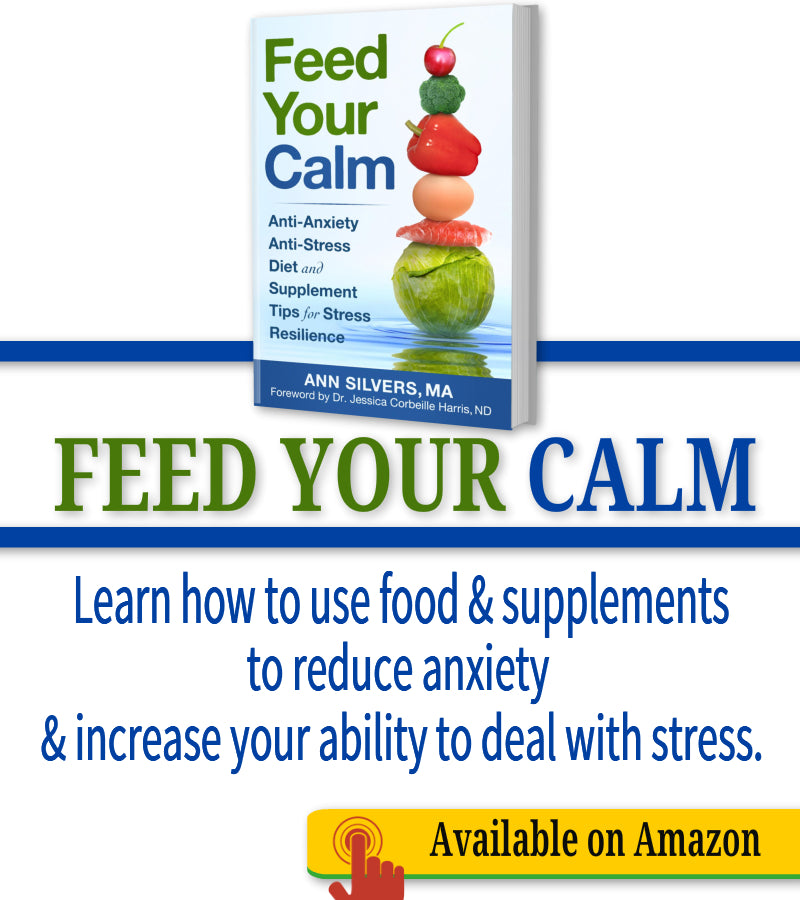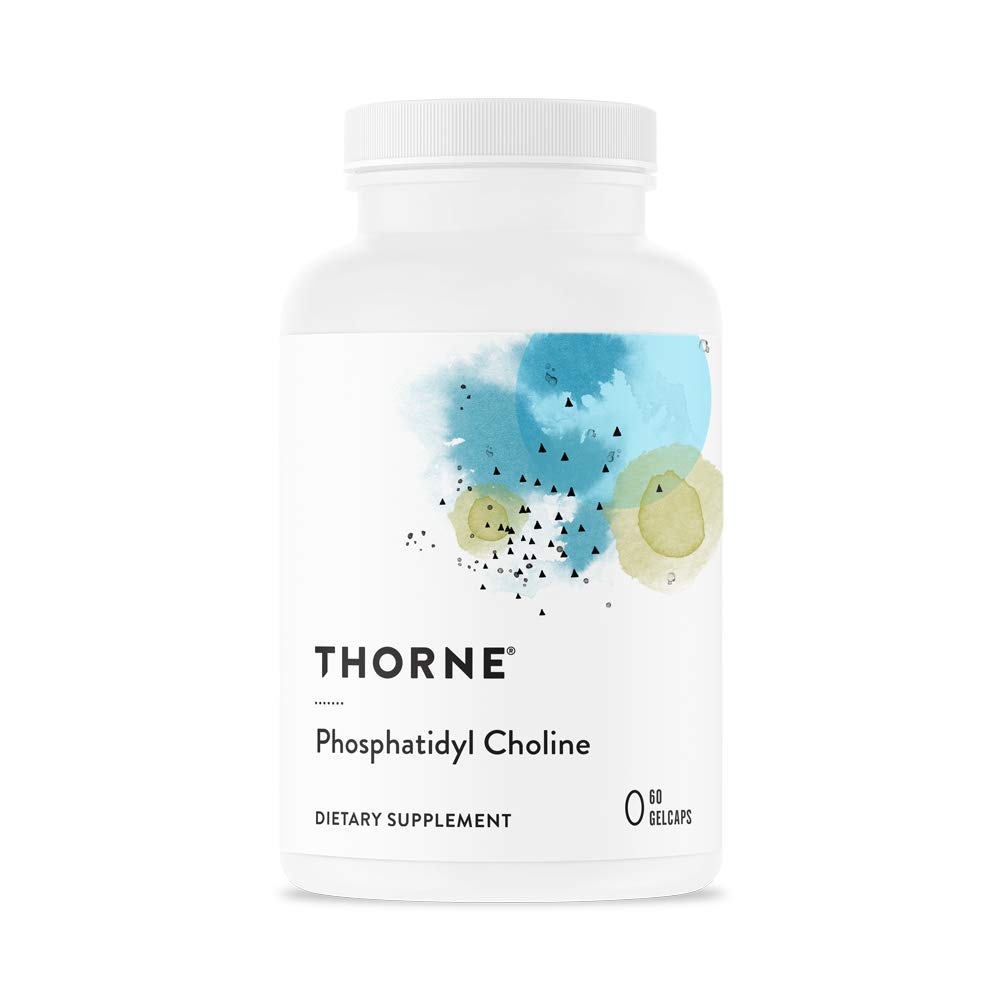Choline for Brain Health and Wellness: Benefits and Sources

Choline is a powerhouse nutrient that supports your brain, mood, memory, and more. It helps with energy production, inflammation control, and even healthy aging.
In this post, you’ll learn what choline is, why it matters for wellness and brain health, how it may help protect against Alzheimer’s disease, and how to get more of it through food and supplements.
All About Choline
| What is Choline? |
| What are the Benefits of Choline? |
| Is Choline a B Vitamin? |
| Choline Brain Benefits Research Study |
| Recommended Amounts of Choline |
| Choline and Folate |
| Choline-Rich Food Sources |
| How Much Choline is in Foods? |
| Choline Supplements |
| Book: Lots More Tips for Using Food and Supplements for Mental Health |
[Disclaimer: This post is not meant to be medical advice. I am summarizing and passing on information based on my research and experience. Check with your own medical providers for personalized guidance.]
What is Choline?
Choline is an essential nutrient. That means that you have to have it and you have to take it in—you can't make it in adequate amounts for health.
It was only added to the US list of required nutrients in 1998, so recognition of its importance is relatively new.
It is similar to B vitamins, but it is not a vitamin.
Your body can produce a small amount of choline, but you need to eat or take in the bulk of it from diet or supplements.
Is Choline a B Vitamin?
Choline used to be classified as a B vitamin and is sometimes still referred to as vitamin B4, though it's not officially recognized as such today.
Here’s a quick summary:
- Choline shares similarities with B vitamins because it is water-soluble and plays a key role in metabolism, brain function, and liver health, much like other B vitamins.
- It was historically grouped with the B-vitamin family, especially before it was recognized as an essential nutrient in its own right in 1998 by the US Institute of Medicine.
- Although no longer labeled vitamin B4 in formal nutrition science, the term may still appear in older texts or informal use.
What are the Benefits of Choline?

Choline is vital to the structure of cells throughout your body and is of particular importance for liver and nervous system function.
Choline benefits include helping lift mood, boosting memory and energy, and reducing inflammation.
It also supports the health of your mitochondria — the parts of your cells that produce energy — helping your body and brain run more efficiently.
Adequate amounts of choline are important to your brain for several reasons.
-
Choline is used by your body to make fats and move fats to where they are needed. (Your brain cells are largely made of fats, so this is a key nutrient for a healthy brain.)
- It is used to make the neurotransmitter acetylcholine. Acetylcholine plays a role in muscle control, memory, learning, mood, and other brain functions.
Choline is important for brain health across the lifespan, from fetal development to old age.
Choline Brain Benefits Research Study

Researchers at Arizona State University studied the effect of lifetime choline supplementation on mice that were bred to develop Alzheimer-like symptoms (AD mice) and mice that did not have the Alzheimer's gene (non-AD mice) against control groups of both types of mice who were not supplemented.
The 4 groups of mice in the study:
- Mice bred to develop Alzheimer's symptoms (AD mice), lifetime supplemented with choline
- Mice bred to develop Alzheimer's symptoms (AD mice), not supplemented
- Mice that didn't have the Alzheimer gene (non-AD mice), lifetime supplemented with choline
- Mice that didn't have the Alzheimer gene (non-AD mice), not supplemented
The mice were repeatedly placed in a maze to test their memory. The AD mice that were given choline supplements throughout their life had better memory capability than AD control mice that were not supplemented.
Examining brain tissue from the mice showed less microglia activation in the supplemented groups for both AD and non-AD mice compared to their control groups. Activated microglia are associated with neurodegenerative diseases such as Alzheimer's, traumatic brain injury, multiple sclerosis, and Parkinson's disease.
The researchers concluded that their results suggest that "additional dietary choline may be an avenue to reduce brain inflammation in both neurodegenerative disease and the nondiseased aging brain."
Recommended Amounts of Choline
How much choline do you need? How much choline is OK in supplements?
The minimum amount of choline that you should be getting is the Recommended Adequate Intake (AI):
- 550 mg/day for adult males
- 425 mg/day for adult females
To maximize the benefits of choline, you need to be getting more than the minimum.
There is also a Tolerable Upper Limit (UL) established for choline. It is recommended that you don't go over this amount with supplements:
- 3,500 mg/day
Choline and Folate
Folate is vitamin B9.
Choline and folate play well together. To optimize your use of choline, make sure you are getting enough folate also.
About folate in supplements: Folic acid is sometimes included in supplements instead of folate, but it is not really what your body needs. If you want to boost your folate using supplements, look for those that say folate on the nutrient breakdown. (For more on this: Folate vs Folic Acid Foods and Supplements.)
Choline-Rich Food Sources
Choline can be found naturally in some foods.
The best food sources of choline include:
- Pasture-raised eggs
- Liver (chicken or beef)
- Grass-fed beef and pastured pork
- Wild salmon
- Dairy products
- Cruciferous vegetables (cauliflower, broccoli, cabbage, bok choy, kale, Brussels sprouts)
These foods are also good sources of folate.
Note about pasture-raised eggs and meats: Eggs, beef, and pork are good sources of choline. Raising the hens and animals on pasture maximizes the benefits, but also adds to production expense. If you can afford pasture-raised, go for it. If it isn't in your budget, you can still get valuable nutrients from these foods—even when they aren't pasture-raised.
For more on the pluses and minuses associated with different ways of treating animals, check out this post: Why Eat Pasture-Raised Eggs for Mental Health?
How Much Choline is in Foods?

Choline Supplements
Some experts recommend CDP choline, also called Citicoline, or Alpha GPC choline. When I looked on Amazon, they are either extremely expensive or have quite a lot of bad reviews, where people are talking about experiencing negative side effects like headaches.
Personally, I have used Thorne Research's Phosphatidyl Choline for many years. (Thorne is a high-quality supplement company that stays away from GMO sources. This is particularly important with choline supplements as they are most often sourced in soybeans, and most soybeans are now GMO.) It seems to me that my brain is sharper when I use it. I also eat many choline-rich foods.
Thorne Research's Phosphatidyl Choline's Amazon reviews are mostly 5-star. When I checked what the low-rating reviewers had to say, their complaints were things like feeling that the pill was too large. (It is fairly large, but it is a capsule and I find that it goes down easily.)
For your convenience, here's the link to the choline supplement on Amazon:
Book: Lots More Tips for Using Food and Supplements for Mental Health
Looking for more ways to support mental health and stress resilience through nutrition?
My book Feed Your Calm is packed with practical tips and science-backed insights on using food and supplements for mental health. I spent four years researching and writing it—drawing on my first career as a medical lab technologist and training in Integrative Medicine for Mental Health to sort through the science and uncover what really helps.
I may get a small commission if you purchase supplements through links on this page. It does not affect your cost and does not factor into my mention of the product to you.
- Ann Silvers









Comments 0